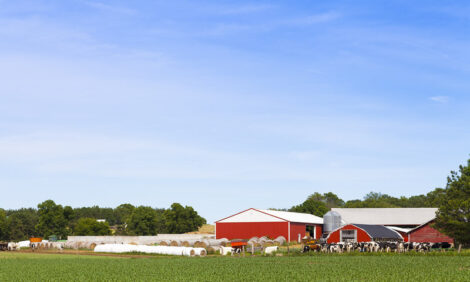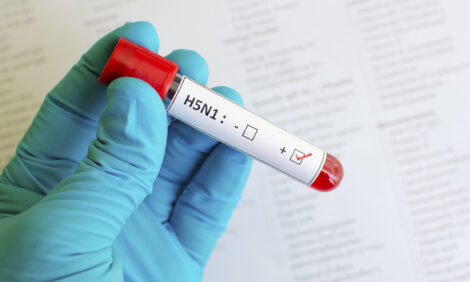



Have you Ever Wondered Why you Can’t Sell Your Dairy’s Milk Straight to a Consumer?
Farmers are now able to sell raw milk straight to the consumer after the sale of raw milk was legalised earlier in 2013.Ann Hoerner of the North Dakota Holstein Association explores why a North Dakota State Senate Bill has allowed farmers to sell raw milk and why some states have not allowed producers to do so.
I thought it might be interesting to research why 37 states have now legalized the sale of raw milk as of 2013. That is a number that has to make you wonder why states not allowing the sale of raw milk are so much in the minority!
There must be something afoot here. It appears that this is a consumer rights issue based on some compelling scientific facts and testimonials. Raw milk is considered a health food by proponents of raw milk. The big issue is whether consumers have the right to buy a product directly from the food producer for their own personal use even if the government says there is a risk. There seems to be no problem for picking your own berries.
There's no outcry that doing so puts the retail berry trade at risk of a "black name" if someone gets coli from the raw uninspected farm product. In the case of commercial milk and raw milk, the two products are separate products and do not really reflect on each other. In this country we are allowed to eat all kinds of processed foods and smoke cigarettes that all health professionals unanimously agree are harmful for your health. In fact health officials and nutritionists are in agreement as to the harmful effects of processed foods, yet they are retailed and sold with no warnings of harm to one's health.
Raw milk is singled out by government and the commercial milk interests to be a 'unique' risk to the public. The consumers say they have a right to make their own food choices in what they and their families eat, as they do in retail food stores. It appears to me that commercial milk and raw milk are definitely two separate products. If in fact, some problem did occur with the sale of raw milk, then commercial milk processers and the government, end up owning the problem by claiming the two food products are the same "milk."
I've concluded, after reading the links provided below, that commercial milk, if indeed there would be a problem with raw milk, is making raw milk their problem by claiming the two products are the same. They are not. It seems commercial milk should not be claiming ownership of another products' "black name" if, in fact, there would be a problem. The two can exist side by side
and perhaps it would be best to not protest so much. There is room for both products to coexist separately. Risks and benefits are different for what are two separate products with similar names.
Below is an article written by Pete Kennedy on the North Dakota Herdshare Bill being signed into law. He is an attorney in Sarasota, Fl and is also the President of the Farm-to-Consumer Legal Defense Fund and Vice President of the Farm-to-Consumer Foundation. He has helped farmers get started in the business of distributing raw milk and raw milk products in many states as well as defending farmers facing possible enforcement action in Florida, Wisconsin, Ohio, Michigan, and Indiana.
"On April 29 herdshares become officially legal in North Dakota when Governor Jack Dalrymple signed Senate Bill 2072 into law. SB 2072 provides that "it is not a violation [of law] to transfer or obtain raw milk under a shared animal ownership agreement."
Shared animal ownership is defined in the bill as "any contractual arrangement under which an individual:
- Acquires an ownership interest in a milk-producing animal;
- Agrees to pay another for, reimburse another for, or otherwise accept financial responsibility for the
- care and boarding of the milk-producing animal at the dairy farm; and
- Is entitled to receive a proportionate share of the animal's raw milk production as a condition of the
- contractual arrangement.”
The original version of SB 2072 did not contain a provision on herdshares; the bill only amended the state dairy code to adopt the latest revision of the Pasteurized Milk Ordinance (PMO), which governs the production and sale of pasteurized milk in the U.S.
After the bill passed the Senate, North Dakota Department of Agriculture (NDDA) Dairy Director Wayne Carlson intended to introduce an amendment to SB 2072 banning herdshare agreements in the House Agriculture Committee.
Raw milk proponents had advance notice of the amendment and were able to convince the committee to instead adopt an amendment expressly legalizing herdshares. To ensure that NDDA does not attempt to undercut herdshare agreements in the future, the new law contains a section stating, ". . . the commissioner may not adopt any rule that restricts, limits or imposes additional requirements on any individual transferring or obtaining raw milk in accordance with the terms of a share animal ownership agreement."
With a possible eye towards legalizing the sale of raw milk in North Dakota, SB 2072 calls for a group referred to as "legislative management" to "consider studying the availability of raw or unpasteurized milk, for human consumption, in this state." The group is to report its findings and recommendations along with any proposed legislation to implement those recommendations to the legislature next session.
North Dakota now joins Alaska, Colorado, Idaho, Tennessee and Wyoming as states that have officially legalized herdshares by either statute or regulation; earlier this year the Michigan Department of Agriculture and Rural Development adopted a written policy recognizing the legality of herdshare agreements. "


